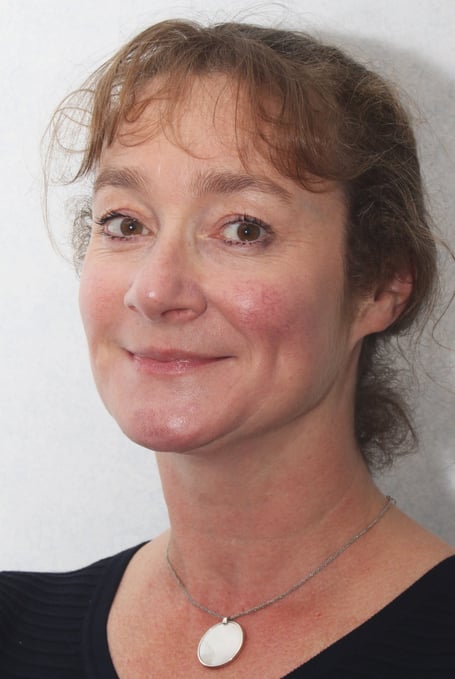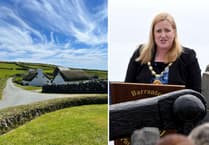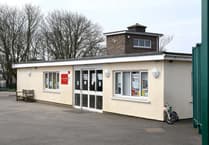Literary levels of primary school children have fallen during the pandemic.
Garff MHK Daphne Caine says that the significant reductions in attainment levels in schools is ‘starkly apparent’.
In the House of Keys sitting this week, Education Minister Julie Edge revealed figures that showed a fall in the number of pupils attaining expected levels.
Data wasn’t collected centrally for 2019/20 so figures, provided by schools, were compared between 2018/19 and 2020/21.
Attainment of ‘expected’ literacy grades of 4B (equivalent to a C in GCSE) and above decreased across this period, with a decrease in the number of pupils attaining ‘above expected’ levels at the end of year six (when children are 11) in 4A (equivalent to a B) and above as well.
For example, those attaining 4B and above in speaking and listening fell by 10.6%, reading by 10.3% and writing by 13.3%.
Meanwhile, speaking and listening for 4A and above fell by 19.3%, reading by 17.3% and writing by 17.3%.
Ms Edge said: ‘We are working with schools to ensure measures are taken to narrow the gap. Schools are best placed to decide the most appropriate intervention support and this will vary depending on the context and need.
‘The department are setting up a literacy working group which will look at overall general provision across key stages two and three and this will involve the creation of a literacy framework.’
After the sitting Mrs Caine said: ‘I am on the same page as the education minister when it comes to wanting to see better funding and resourcing of our schools. However, the trend has been downward for some time and I believe has been exacerbated by the pandemic disruption.
‘Where Westminster has pledged additional funding of £1,500 per pupil and talks of employing students to assist with Covid catch-up in reading, longer school hours etc, there is no mention of any such support for island children.’
Mrs Caine also mentioned during the sitting that help is needed now rather than later. The education minister explained that teachers are ‘working hard with students’ to ensure they attain the best outcomes and the department was committed to ensuring a baseline assessment is done to determine what support is available to pupils in schools.
Mrs Caine told the Manx Independent: ‘It is obvious that we need wide scale intervention for a large proportion of our young people and talk by the minister of targeted, specific intervention is not enough.
‘I do worry that while the department works on its frameworks and literacy working groups a whole generation is being lost. We need action now to support schools to help students catch up in all areas where they are falling behind.’
Ms Edge said in the sitting there would be a full funding review for schools undertaken and her department would work with Treasury on this to see if additional funding is needed.
funding
There was no confirmation from Ms Edge that the funding for this would be forthcoming, which the MHK deemed ‘worrying’.
She continued: ‘One thing that was encouraging was when Ms Edge agreed with my point that tracking individual pupil progress might give a more meaningful measure by which to assess schools’ attainment year on year. Currently a small number of children with additional needs can skew school results.
‘As a parent, and as a community, we just want well funded schools, adequately resourced in terms of teachers, support staff and tech, with young people confident and capable of achieving their potential and obtaining the good local jobs available.
‘We also need a bit more openness about publishing results and acknowledging the current levels in literacy, maths and science, plus a costed plan of where we go from here to regain the pride and confidence we once had in the Manx education system.’
Michelle Haywood (Rushen) asked Ms Edge if measures taken with school leavers would be applied across the board, all the way down to nursery level.
She suggested children entering school now are behind on their development, having been used to dealing with people wearing masks, which as a result has affected their ability to communicate.
Mrs Haywood said it was now very much a ‘catch-up generation’. Ms Edge explained there is a childcare strategy in place in nurseries and that the department is doing its utmost to ensure children are being supported and working on appropriate targeted intervention for all schools.
She added that the government would be ‘open and transparent’ about any data and would make sure it is publicly available.
Mrs Caine then asked if the Isle of Man still has a ‘world class’ education system or if the ‘lack of investment’ in schools in the last decade has changed this - to which Ms Edge replied that the island has ‘an excellent education system’.



-(1).jpeg?width=209&height=140&crop=209:145,smart&quality=75)

Comments
This article has no comments yet. Be the first to leave a comment.